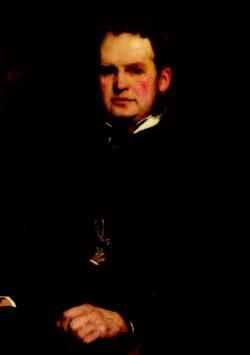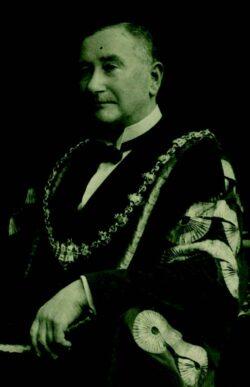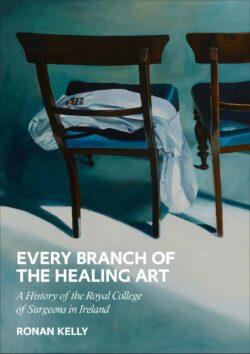Every branch of the healing art
Richard Theodore Stack, Edward Leo Sheridan and dentistry in the RCSI – by Dr Ronan Kelly
The Royal College of Surgeons in Ireland (RCSI) was responsible for an Irish and British first in 1884, when it created a Professorship in Dental Surgery.
The inaugural appointee was Richard Theodore Stack (1848-1909, Lic. 1875, FRCSI 1878, Professor of Dental Surgery 1884–1909), who never intended to be a dentist. He was headed for a glittering medical career when a bout of rheumatic fever left him so deaf, at 26, that he could no longer use a stethoscope.

Three years later, he graduated in dentistry from Harvard. (For the rest of his life, he disliked being called ‘Doctor’; his door-plate, visiting cards and book stamp all read ‘Dentist Stack’). Returning to Dublin, Stack joined the city’s sole dental college, the Metropolitan Dental Hospital in Beresford Place. After a time, dissatisfaction with the Metropolitan led Stack and others to found the Dental Hospital of Ireland in 1879, first located at 29 York Street, later moving to Lincoln Place.
Until this era, dentistry in Ireland was entirely unregulated. In some cases, trained surgeons or apothecaries would take care of teeth; elsewhere, barbers, wigmakers or even blacksmiths did their best, or worst, with the tools of their trade. It was a similar situation in Britain, where reformers had unfortunately split into rival factions. Ultimately, this led to parliamentary invention and regulation; the Dental Practitioners’ Act (1878).
This Act, in turn, motivated RCSI to institute a Licence in Dental Surgery, Ireland’s first dental qualification. A dental Court of Examiners was set up, consisting of three Fellows and three dentists, including Stack – and two days later the first exams were held. Stack’s subsequent professorship underlined the profession’s raised status. Undergraduate dental education would continue at RCSI until 1977, during which time some 1,600 students earned their LDSRCSI.
However, between the war years, dentistry struggled for recognition at RCSI. Following Henry Gregg Sherlock’s (1850-1924) tenure as Professor of Dental Surgery 1910-24), no replacement was appointed (for 40 years the Dental School was staffed by lecturers, until a general overhaul in 1965).

But the mid-century status of the profession was raised considerably with the election of Edward Leo Sheridan to the office of President of RCSI. A Council-member since 1922, Sheridan had previously been elected President of the Irish Dental Association 1926. Moreover – and controversially – he was appointed as Chairman of the Dental Board of the United Kingdom in 1940.
This provoked objections in the House of Commons, where he was denounced as ‘a Sinn Fein Irish Catholic living in Dublin’, but Sheridan’s charm and ability ensured his success in the role. At a meeting of the Irish Dental Association in 1945 – held in RCSI – one commentator noted that, whereas dentists were formerly “regarded by many as a mere technician, with, perhaps a sadistic bent”, this attitude had changed a good deal lately, thanks to Sheridan.
At this time, there were four dental schools in the Free State – RCSI, UCD, TCD and UCC – while all practical training was done in Dublin and at the Cork Dental School. The latter had been founded by Israel Scher (1887-1954, Lic. Dent. 1909). Like their medical confrères, Irish dentists were educated for export – in the mid-1950s it was calculated that some 85 per cent would emigrate.
Generally speaking, the Irish populace’s need for dental treatment was considered “extremely high”, but the demand for it was “extremely low”. To redress the former, the fluoridation of public drinking water commenced in 1964.
Since 1987, a biennial Leo Sheridan Medal (with an accompanying Lecture) has been awarded by the Faculty of Dentistry (established 1963).

Dr Ronan Kelly works in RCSI Library’s Heritage Collections. His book, Every Branch of the Healing Art: A History of the Royal College of Surgeons in Ireland is out now and available from Wordwell Books and in all good bookshops.
Tags: RCSI

You must be logged in to post a comment.